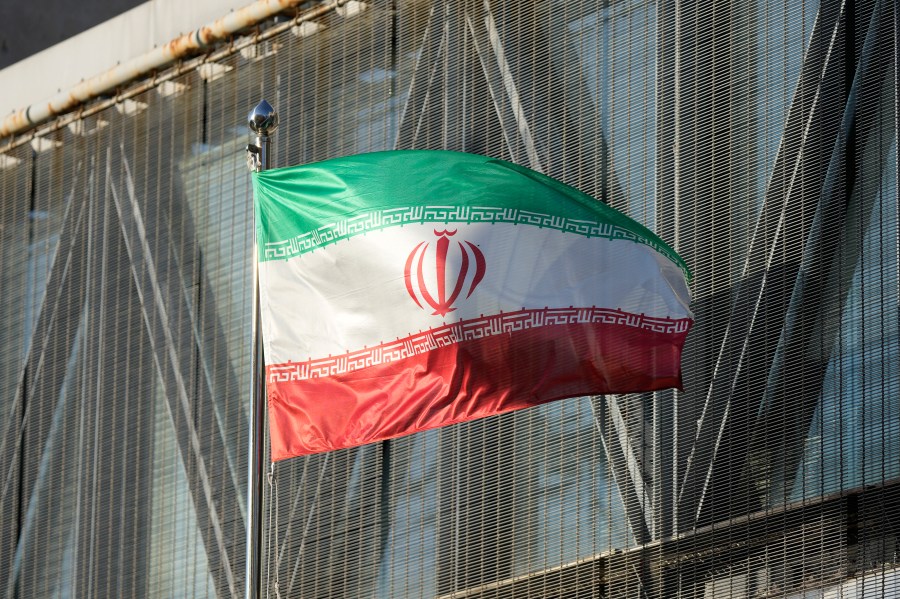Five ways Netanyahu’s return could shake up Israel and the world
Former Israeli Prime Minister Benjamin Netanyahu is set to return to power after teaming up with far-right parties to win this week’s elections.
Results from the election show that Netanyahu’s conservative coalition is expected to win as many as 65 seats in the 120-member Knesset. No political party has ever singlehandedly won a majority in Israel’s multiparty parliamentary system, so political parties must come together in a coalition to govern.
Netanyahu is the longest-serving prime minister in Israel’s history, having served from 1996 to 1999 and again from 2009 until 2021. But he has long courted controversy, and in recent years, become embroiled in corruption charges.
Netanyahu’s return to power could have major domestic and international political implications, as he represents a stark shift from Prime Minister Yair Lapid, a centrist who was Netanyahu’s main opponent and conceded on Thursday.
Here’s five ways Netanyahu’s return could shake up Israel and the world:
Netanyahu’s allies could erase criminal probes

Benjamin Netanyahu waves to his supporters after first exit poll results for the Israeli Parliamentary election on Nov. 2, 2022. (Associated Press)
Netanyahu has been fighting charges of corruption since 2019, when he became the first sitting premier to be indicted. He is facing charges of bribery, fraud and breach of trust.
Netanyahu’s Cabinet will be filled with the top leaders of the political parties in his coalition, and those officials could back legislation that would grant Netanyahu immunity from prosecution as sitting prime minister.
Netanyahu would just need a simple majority of the Knesset to vote in favor of the legislation to shield him from the charges.
He is accused in one case of accepting gifts from two businessmen in exchange for policy favors. In two other cases, he is accused of corrupt dealing with media organizations in exchange for favorable coverage.
Netanyahu has denied wrongdoing in these cases as his trial has gone on for multiple years.
Netanyahu previously requested the Knesset grant him immunity from the charges in 2020 but withdrew it, as he did not appear to have the necessary votes to receive the legal protection.
Far-right parties key to new government

Israeli far-right lawmaker and the head of “Jewish Power” party, Itamar Ben-Gvir, waves the Israel flag after first exit poll results for the Israeli Parliamentary election. (Associated Press)
A far-right party is expected to be a key part of Netanyahu’s coalition and play a major role in governing decisions. Itamar Ben-Gvir’s party, Otzma Yehudit, is projected to win about 15 seats in the Knesset based on exit polls, the best ever showing for the party in an election.
Ben-Gvir reportedly said he would request being appointed the interior minister in a ruling coalition, which would make him responsible for Israel’s police and prison service.
The Jerusalem Post reported that he said his priorities would include changing the rules of engagement for police and soldiers, reducing terrorists’ rights in jails and allowing anyone with basic combat training to carry a weapon.
The Post published an editorial against Ben-Gvir’s inclusion in a coalition government, citing his past remarks advocating for the creation of a “Ministry to Encourage Migration” to convince Palestinian Arabs to leave Israel, and calling for Israelis to shoot Palestinians who throw stones at them.
He has called for deporting Arab lawmakers, imposing a death penalty for convicted terrorists and granting the Israeli security forces greater legal protections when fighting Palestinian militants, The Associated Press reported.
Otzma Yehudit’s success in the election will likely grant the party considerable leverage in Netanyahu’s coalition. Netanyahu would need to support the party’s initiatives for it to support granting him immunity in his corruption cases.
Biden and Bibi are not friends, but not enemies

Biden and Netanyahu have had a relatively smooth relationship in the first years of Biden’s presidency, but that dynamic could be in jeopardy if far-right politicians are given high-profile positions in Israel’s government. (Getty)
Biden and Netanyahu appeared to achieve a cold peace at the start of the new administration, overcoming years of acrimony between Democrats and the Israeli leader.
Past disagreements range from Netanyahu’s opposition to the Joint Comprehensive Plan of Action (JCPOA), the 2015 nuclear deal with Iran; his pursuit of Israeli settlement expansion in the West Bank; his acrimony towards American efforts to mediate with the Palestinians during the Obama administration and his embracing of Republicans and policies of the former Trump administration.
“US-Israel relations will remain close but are likely to be bumpier, especially if Bibi tries to put his thumb on the scale of US politics in support of Republicans as he has in the past,” Barbara Slavin, director of the Future of Iran Initiative at the Atlantic Council, said in a statement, using Netanyahu’s nickname.
Biden achieved a key victory with Netanyahu in May 2021, helping achieve a cease-fire to end 11 days of war between Israel and Hamas in the Gaza Strip, with the president’s messaging — holding back overt criticism of Israeli actions — credited as smoothing the relationship between Washington and Jerusalem.
Netanyahu also welcomed closer coordination with the U.S. even as Biden sought to revive the JCPOA.
But Biden and Netanyahu could clash if Ben-Gvir and his political partner, Bezalel Smotrich, are given high-profile portfolios in the government.
Two U.S. officials told Axios that the Biden administration could refuse to work with the far-right politicians.
Such a move is not without precedent. Netanyahu refused to allow two Democratic members of Congress, Reps. Ilhan Omar (Minn.) and Rashida Tlaib (Mich.), from entering Israel, citing an Israeli law that blocks entrance for people who support boycotting the Jewish State. Former President Trump welcomed Netanyahu’s decision at the time.
Harsher stance on Iran

While the Biden administration supports JCPOA, Netanyahu backed former President Trump’s withdrawal from the deal. (Associated Press)
Netanyahu will surely continue his staunch opposition to U.S. efforts to rejoin JCPOA, even as indirect talks between American and Iranian officials have effectively ceased.
While the Biden administration maintains that the JCPOA provides the best opportunity to box in Iran’s nuclear program, Netanyahu supported the former Trump administration’s withdrawal from the deal and reimposition of sanctions to isolate the regime in Tehran.
Critics of the JCPOA say its sanctions relief would embolden Iran’s other malign activities, including support for terrorism, military proxies across the Middle East and supplying weapons to Russia.
Ukraine is also hopeful that Netanyahu’s animosity toward Iran could encourage Israel to become more involved in the war with Russia, as Tehran plays a growing role in supporting Moscow.
Moscow is using Iranian-made, “kamikaze” suicide drones to target Ukrainian energy infrastructure and civilians, and the White House is further warning that Russia is looking to purchase surface-to-surface missiles from Tehran.
“Hopefully, we will have some progress, at last, related to Iranian weapons [used against] Ukraine,” Ukraine’s Ambassador to Israel, Yevgen Korniychuk, told The Hill, when asked for reaction to Netanyahu’s likely victory.
While the U.S. and Europe have imposed sanctions on Iran’s drone program, they appear to have done little to disrupt the construction and shipment of the relatively simple and cheap loitering munitions.
Closer relations with Russia

Some Israeli political and military leaders believe that close ties with Russia are in Israel’s best interests. (Associated Press)
However, it remains unclear how Netanyahu’s comeback will impact its role in the Russia-Ukraine war.
Netanyahu is viewed as having a close working relationship with Russian President Vladimir Putin, having established the close military communication that allows Israel to operate in the Russian-controlled airspace above Syria to take out what it views as Iranian threats.
“During his long previous stint as prime minister, Netanyahu frequently met Putin in person and talked with him on the phone. Russian-Israeli relations were basically good, despite Moscow’s close ties with Tehran,” said Mark Katz, nonresident senior fellow with the Atlantic Council’s Middle East Programs.
There’s a general consensus among Israel’s political and military leaders that strategic ties with Moscow are in Israel’s national security interest. U.S. officials, recognizing Israel’s careful balance, have still tried to push Jerusalem to more fully support Ukraine and singled out Lapid for employing stronger rhetoric.
Netanyahu may renege on that.
“With the war in Ukraine having led to Russian ties with Iran becoming much closer and the Russian-American relationship becoming much worse, Netanyahu may be less able than he was before to have the same good working relationship with Putin or to successfully maneuver between Washington and Moscow,” Katz added.
Copyright 2024 Nexstar Media Inc. All rights reserved. This material may not be published, broadcast, rewritten, or redistributed..

















